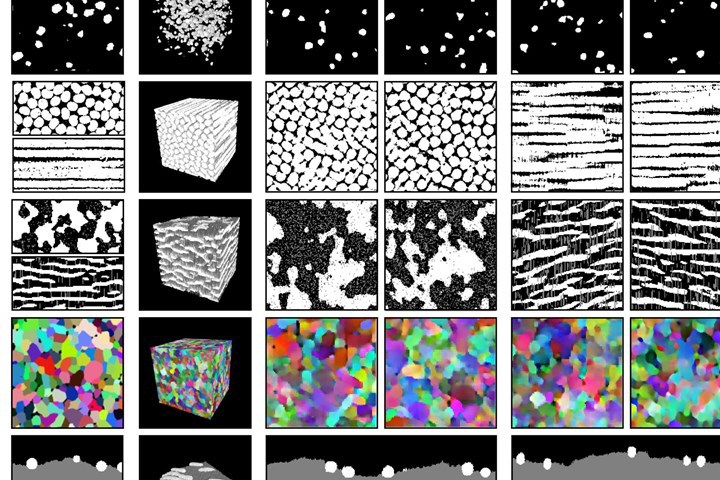Composites Use in Marine Applications
Infused, fiberglass/polyester composite boat hulls have been built since the mid-1900s, expanding over time to include additional resins and foam cores. Composites continue to be a mainstay for various types of boats and luxury and racing yachts, and now include newer innovations such as carbon fiber precision hydrofoils and recycled carbon fiber or bio-based resins.

Latest Marine Articles
VIEW ALLMel Composites materials, technical support enhances Aresa fishing vessel production efficiency
Mel delivered pre-processed structural components and engineering support for the four commercial vessels, reducing build time through workflow optimization and CNC-cut Aircell HR80 core integration.
Read MoreAnemoi rotor sails successfully installed on Taiwanese bulk carrier
U-Ming Transport’s Grand Pioneer VLOC vessel is expected to save an average 10-12% fuel emissions during deep-sea service between Brazil and China.
Read MoreNova Carbon, Grand Large Yachting to integrate rCF into shipbuilding
Strategic partnership aims to reduce the environmental impact of luxury yacht construction by integrating Nova Carbon rCF into the boatbuilder’s manufacturing processes.
Read MoreBrunswick Boat Group to consolidate fiberglass boat manufacturing operations
Brunswick Corp. will close its Reynosa, Mexico, and Flagler Beach, Florida, boat manufacturing facilities, shifting production to high-performing U.S. plants to align with a streamlined product portfolio and evolving market demand.
Read MoreGuanglian Aviation achieves milestone in carbon fiber circular chains development
Following six years of R&D, Guanglian Aviation has introduced circular chains made from carbon fiber and Kevlar that weigh 4-5X less than metal chains, offer 15-year saltwater corrosion resistance, and are poised for large-scale applications in marine engineering, mining and defense.
Read MoreStartup Akvotransiro trials Wind2Water catamaran built from discarded wind turbine blades
Four-person prototype is one of many in-development hulls, floating docks and pontoons comprising bamboo composites and EOL wind blades re-engineered into reliable, environmentally conscious water vessels.
Read MoreKnowledge Centers

Review the state of the art in design, simulation, failure analysis, digital twins, virtual testing and virtual inspection.
LEARN MORE
This CW Tech Days event will explore the technologies, materials, and strategies that can help composites manufacturers become more sustainable.
LEARN MORELatest Marine News And Updates
Gurit secures multiyear subsea contract for Corecell foam core
Long-term structural core supply, already backed by a long history of success, will diversify Gurit beyond its traditional markets.
Read MoreIACC NODE, Lamáquina enable functional 3D printed composite boat
Asket, the student team’s first project, is a custom, one-piece vessel featuring a 3D printed hull, real-time sensor function and adaptive robotic control.
WatchBcomp natural fiber composites to enhance Sunreef catamarans
Innovative yacht manufacturer will use flax fiber-reinforced bio-based or recyclable resin to improve vibration damping, aesthetics and sustainability for its new 100 Sunreef Power cats.
Read MoreNorsepower secures full-fleet rotor sail commitments
Composite wind propulsion technologies will support a series of methanol-ready oil and chemical tankers, as well as six newbuild tankers.
Read MoreU.S. Coast Guard MBI releases report on Titan submersible
The two-year investigation into the June 2023 tragedy that took five lives has been published, citing key findings, contributing factors to the casualty and a recommended regulatory framework to avoid future oversight.
Read MoreAnemoi wins U.K. funding to advance CFRP rotor sail designs
Seven-month project will develop folding sail systems for Anemoi’s 3.5-meter-diameter rotor sail, and cover additional design optimizations that are expected to improve the aerodynamic performance of wind-assisted vessels.
Read MoreFeatured Posts
Hybrid composite architecture enables rigid wind propulsion solution for maritime decarbonization
GT Wings’ AirWing leverages aerospace engineering principles combined with hybrid glass and carbon fiber composite construction to deliver up to 30% fuel savings through compact, deck-compatible wind propulsion.
WatchRecycled carbon fiber composite panels power 40% lighter, durable semi-rigid solar panels
Designed for auxiliary power use while traveling via boat or RV, Italian startup Levante’s custom flexible or standardized semi-rigid solar panels combine the benefits of ReCarbon’s rCF and thermoplastics.
WatchFIDAMC expands composites R&D into new markets and advanced manufacturing centers
Pioneering technocenter advances RTM, thermoplastic composites, additive manufacturing, microwire, novel lighter weight LSP and more.
Read MoreFunctionalizing surfaces for sustainability
Riblets reduce drag, fuel consumption, CO2 emissions and noise while boosting power output, flow rates, speed and efficiency.
WatchComposites end markets: Boatbuilding and marine (2025)
As 2023-2024 consumer demand slows, boat and marine vessel manufacturers continue to focus on decarbonization and new technologies using composites.
Read MoreLarge-format AM speeds plug production for manufacture of composite boat molds
Hungarian manufacturer Rapid Prototyping transitioned its conventional foam milling process to 3D printing to produce faster, higher quality, recyclable foam plugs and composite boat molds.
WatchFAQ: Marine
How are composites used in boatbuilding?
Boats and yachts have featured fiberglass composite boat hulls, decks and other structures for many years. These are typically fabricated via infusion, hand layup and/or sprayup methods. Carbon fiber/epoxy can be used in applications requiring even lighter weight to increase speed or fuel efficiency, such as in sailing boats or racing boats.
More recently, new international regulations have allowed developments in composite decks, superstructures, rudders and other components for large ships as well.
Why use composites in boatbuilding and marine applications?
- Composites are attractive in marine applications due to corrosion resistance, as well as lightweighting that composites can provide compared to metals or wood can reduce fuel use, greenhouse gas emissions and vessel draft, helping to improve sustainability.
- Source: Removing barriers to lightweighting ships with composites


















